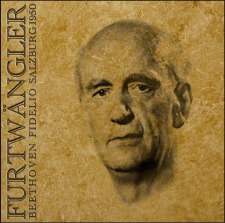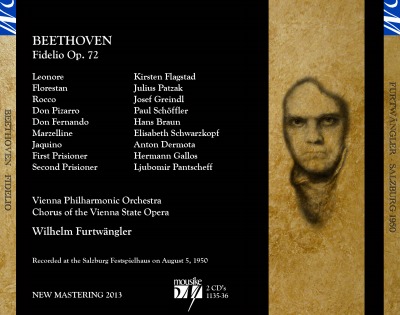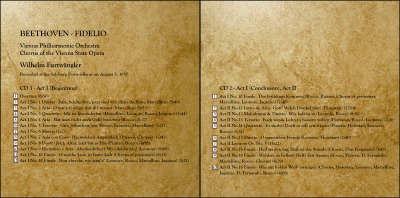 | Beethoven Fidelio Kirsten Flagstad, Julius Patzak, Josef Greindl, Paul Schöffler, Elisabeth Schwarzkopf, Anton Dermota Vienna Philharmonic Orchestra - Salzburg 1950 $14 | |||
"The conjugal love of Leonore appears, to the modern individual armed with realism and psychology, irremediably abstract and theoretical.... Now that political events in Germany have restored to the concepts of human dignity and liberty their original significance, this is the opera, which, thanks to the music of Beethoven, gives us comfort and courage.... Certainly, Fidelio is not an opera in the sense we are used to, nor is Beethoven a musician for the theater, or a dramaturgist. He is quite a bit more, a whole musician, and beyond that, a saint and a visionary. That which disturbs us is not a material effect, nor the fact of the 'imprisonment'; any film could create the same effect. No, it is the music, it is Beethoven himself. It is this 'nostalgia of liberty' he feels, or better, makes us feel; this is what moves us to tears. His Fidelio has more of the Mass than of the Opera to it; the sentiments it expresses come from the sphere of the sacred, and preach a 'religion of humanity', which we never found so beautiful, or necessary as we do today, after all we have lived through. Herein lies the singular power of this unique opera.... Independent of any historical consideration ... the flaming message of Fidelio touches deeply.
We realize that for us Europeans, as for all men, this music will always represent an appeal to our conscience."
This Fidelio from 1950 eloquently expresses this way of looking at the work. Compare the prisoner's chorus of the first act or the beginning of the second act with other recordings and it will be clear.
In addition, you get Flagstad's Leonore and Patzak's Florestan, Greindl's Rocco and Schöffler's Pizarro, Schwarzkopf's Marzelline and Dermota's Jaquino. If that weren't enough, i think this is the greatest Leonore 3 I know. The climax is the most glorious, reminding me of what one can hear in the Finale of Furtw?ngler's recording of the Beethoven 5th from 1943. All of this makes this Furtw?ngler's greatest Fidelio, immensely better than the studio recording of 1953, which is his worse.
EMI has released a fairly clean version of this recording, but has emasculated the sound. It lacks presence and strength. This version is not as clean as the EMI, with more instances of distortion, but it does have guts.
 |
 |